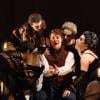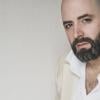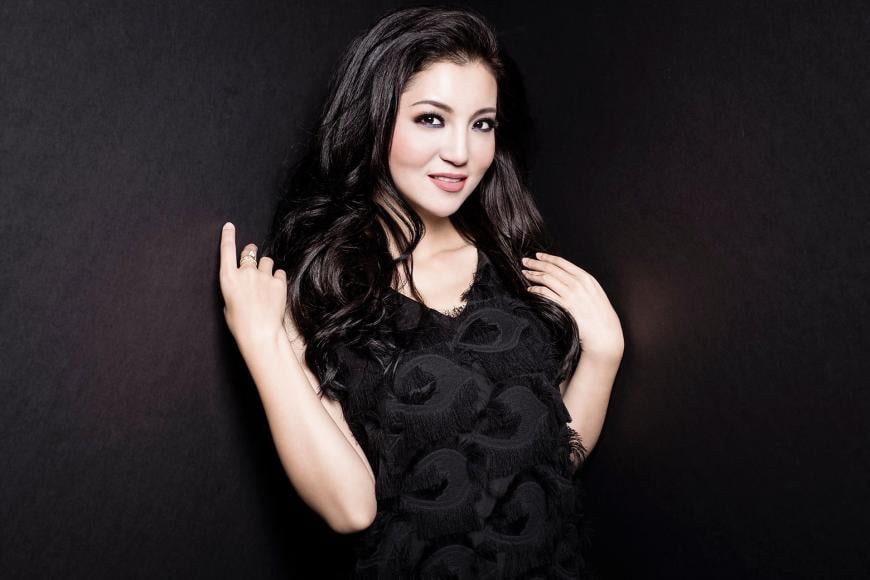
When she was a mere 14 years old, Meigui Zhang was given a boxed set of Maria Callas recordings that would set her on a career path that has been nothing short of remarkable. Now, at age 28, the soprano is scheduled to make her San Francisco Opera mainstage debut, in the role of Dai Yu in the revival of Bright Sheng’s Dream of the Red Chamber, which runs June 14 – July 3.
Born into a musical family in Chengdu, China, Zhang earned a bachelor’s degree at Shanghai Conservatory and Sichuan Conservatory. After completing her master’s degree from Mannes School of Music in New York City, the singer made her debut as Anne Trulove in The Rake’s Progress with the San Francisco Opera’s Merola Opera Program in the summer of 2018. Of that performance, the San Francisco Chronicle’s Joshua Kosman wrote: “Yet the evening’s true star … was soprano Meigui Zhang, who brought both tonal bloom and alert precision to the role of Anne Trulove. … Her rendition of Anne’s final lullaby was nothing short of luminous.”
In addition, Zhang participated in the Bel Canto at Caramoor Young Artists Program and previously had sung the role of Pamina in Die Zauberflöte at Chautauqua Institute, a character she revisited in her European debut at the 2019 Verbier Festival in Switzerland. Adding more roles to her growing repertory, Zhang performed in the Asian premiere of Benjamin Britten’s The Rape of Lucretia with the Tianjin Grand Opera in China, while other parts include Despina in Così fan tutte, Susanna in Le nozze di Figaro, and the heroine in Roméo et Juliette.
Zhang, like most opera singers, was thrilled to perform at the Met in the 2019–2020 season, when she bowed in the roles of Bloody Child in Macbeth and Barbarina in Figaro, both while attending the second year of the Metropolitan Opera’s Lindemann Young Artist Development Program. But wait! There’s more: Under the baton of Yannick Nézet-Séguin, the soprano returned to the Met stage this past February, this time as Thibault in David McVicar’s new production of Verdi’s Don Carlos.
Taking a breather from her busy schedule, the millennial, who is a certified scuba diver, found the time to chat with me by phone from her home in San Francisco.
I understand it was your father, a tenor, who gave you the Maria Callas recordings. What was it about her singing that made you want a career in opera?
Yes, my father gave me these recordings for my birthday. The box [set] has so many different kinds of repertory, and I got a chance to listen to different kinds of operas from different composers. I found it amazing. I heard the most famous arias from that recording, and I totally fell in love. The color of her voice and the music can really move my heart.
You’re not alone there, but you’re probably one of the few singers who was able to establish herself so quickly in the field. When you went to New York to study at Mannes, was that a huge cultural shift, or had you been to the States before?
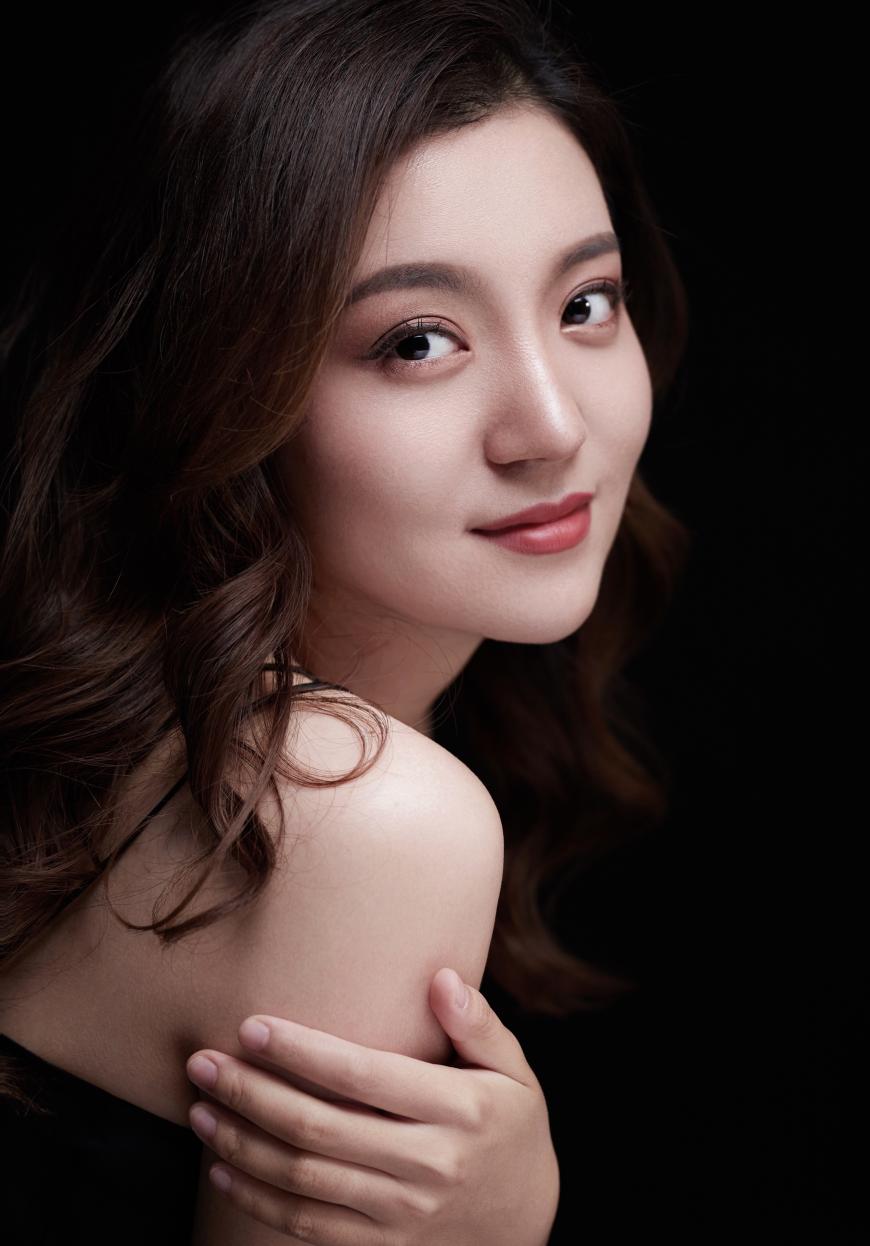
Before pursuing my master’s degree, I did the summer program at Chautauqua. I have been to the United States for several times to have some voice lessons and to experience a little bit in New York, but I still think there’s a big challenge for me, because studying abroad is totally different — the language barrier, the culture, it was a big difference. I told myself, I have to get used to everything quickly, that I have to use just six months to get used to this environment.
I’d say that you succeeded. So, how does it feel coming back to San Francisco Opera, where you jumpstarted your career in 2018 in the Merola Program?
It feels amazing. I had a great time and experience with the program. Now it feels like it’s back to the family. It’s always very nice to work somewhere [with people] who know about you and you also know about them. I feel like home here. And the people treat me really well. I love San Francisco Opera, and four years ago, when I did The Rake’s Progress, it was nice to sing this opera, and I had friends there, and we are still friends right now.
You seemed to be on an operatic roll and then COVID hit. How did that affect you?
During COVID, I had just finished Lindemann, and at that time the opera house was closed. I had to go back to my country for a year, but during that time, China [was open], and I got a chance to perform in different cities all over China.
That’s fantastic. And what’s also fantastic is your upcoming debut as Dai Yu in Dream of the Red Chamber. [The famous 18th-century novel on which it’s based recounts the love triangle between a young nobleman and two different women — one his spiritual soulmate and the other a beautiful heiress.] Since you read the novel as a girl, what are your thoughts on performing in the opera now?
This is always my dream, and now suddenly it’s come true. When I heard from San Francisco Opera, I was so excited about this. I know the story [from] when I was really young. It’s a famous Chinese novel, and everybody knows it. It’s [also] such a treasure in Chinese history, so it’s a privilege to sing this role.
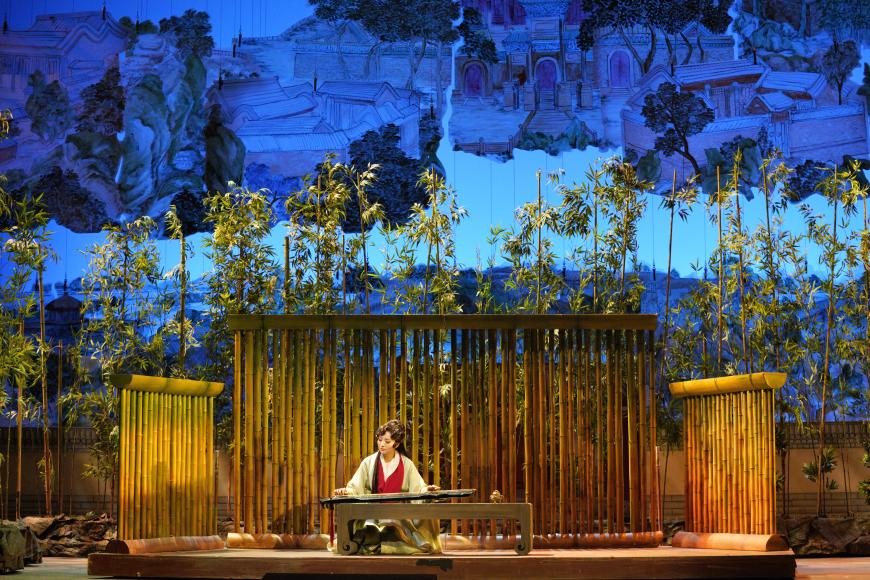
It had its world premiere at San Francisco Opera in 2016. Had you seen a video of the production? How would you describe Sheng’s music, and did you meet with him?
I met him a few months ago in New York. We worked a little bit with the opera, and he was happy about it.
[Regarding the music], I studied it first, and I look[ed] at the video, to give me the structure. This is more than music, because I really want to know Bright’s style and also the music for my part and for the whole, to give me a whole impression. I know this character very well, I don’t need to think about it more, [but] I reread the novel again, which is very interesting for me. When you read it in a different age, you will have so many different experiences and thoughts.
I think Bright wrote really beautiful melodies for Dai Yu. I enjoyed this very much. He has very special requirements for pianissimo; sometimes he requires the long high notes with pianissimo — that requires a lot of technique. He really wants to show that color through her voice.
Tony Award-winning playwright David Henry Hwang’s libretto focuses on the central love story, with the ending having you sink into the lake that, in effect, becomes your grave. What are your thoughts on thism and what do you want audiences to take away?
The ending, I feel it’s so sad and such a tragedy, and I feel heroic for this girl. The ending shows a great beauty for this role. I will say, it’s kind of the highlight, [and] the ending for me is very simple — no drama, but very pure, gentle; you go to the lake. Less is more, and I think people will feel it in the same way. It’s all through the music.
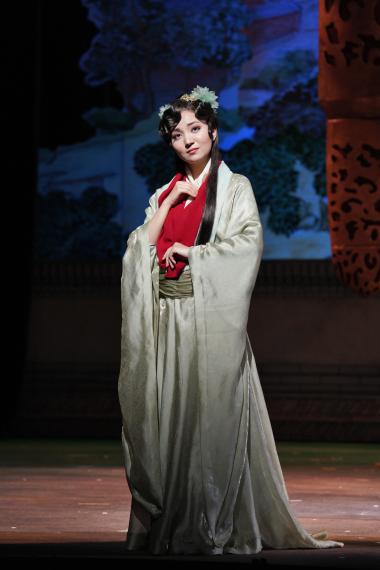
When I perform this role, because I am a performing artist, my duty is to bring this character to life and also to bring the story from the novel to life. I hope the listeners can be touched through my music, and also, I think music has the ability to connect all of us.
For this role, Dai Yu, I want people to not just see [her] as a fragile, soft, gentle, naive girl. I want people to see her inside — her great beauty, talent, and intelligence — and she has such intelligence for writing poetry, and also, she is a girl who is steadfast in her love, values, and beliefs. She died for her love at the end. I want to show the audience those things.
A girl after my own heart! What must be close to your heart, as well, is having made your debut at the Met. What was that like, and have your parents seen any of your debuts outside of China?
No, my parents haven’t seen my debuts, they only see my performances in China. And my Met [performance] was before COVID. First of all, getting to the Lindemann program was like a dream come true. Singing at such a great opera house on the big stage, it’s already like a great start for me. The level is kind of high. I have to be so well prepared, and I keep learning from the greatest singers in the world on that stage. I feel so grateful to be there.
Where do you see yourself in the next five to 10 years, and do you often find that you’re one of the youngest performers onstage these days?
Before, three years ago, I am the youngest one, but I don’t know in five to 10 years. Five years feels long for me. I think everyone has a big dream, but I want to try my best to sing as much as I can in all the places, the opera houses, because I really want to get to know more audiences from different countries.
I have so many roles I want to do. For now, I love Donizetti, Bellini, Mozart, those composers, but I would love to sing Liu in Turandot in the future, Lucia, and the French opera Manon.
So, no scuba diving for you in the coming months?
When I have vacation, I will go scuba diving. I was certified, then COVID came, and now I took an advanced-training class, and this is my second license. I enjoy being underwater; it’s quiet where you can only hear your own breathing.



